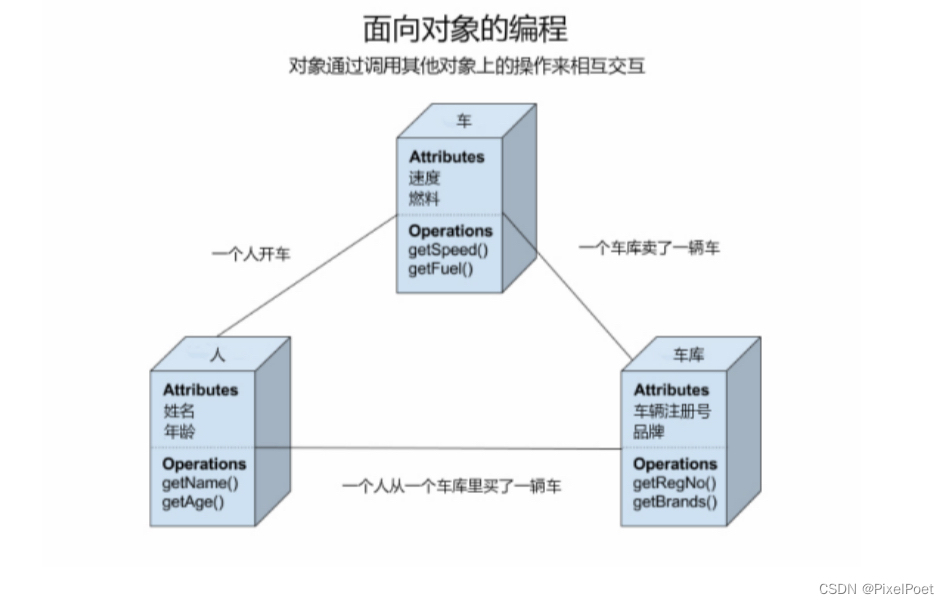Java, renowned for its robustness and versatility, embodies the principles of object-oriented programming (OOP), enabling developers to create modular, scalable, and maintainable software solutions. At the heart of OOP lies the concept of objects, encapsulating data and behavior within a unified entity. This blog post elucidates the fundamentals of Java's OOP paradigm through a narrative involving cars, people, and garages, illustrating how objects interact and collaborate within a software ecosystem.
1. Defining Objects: The Essence of OOP
In Java, objects are instances of classes, encapsulating attributes (data) and operations (behavior). Let's delve into the object-oriented representation of cars, people, and garages:

-
Car Class:
- Attributes:
speed,fuel - Operations:
getSpeed(),getFuel()
- Attributes:
-
Person Class:
- Attributes:
name,age - Operations:
getName(),getAge()
- Attributes:
-
Garage Class:
- Attributes:
regNo,brand - Operations:
getRegNo(),getBrands()
- Attributes:
2. Interacting Objects: Facilitating Collaboration
Objects interact by invoking operations on other objects, fostering collaboration and data exchange. Consider the following scenarios:
-
A Garage Sells a Car:
- A
Garageobject, representing a car dealership, sells aCarobject to aPerson. ThePersonobject invokes thegetSpeed()andgetFuel()operations on the purchasedCarobject, retrieving its attributes.
- A
-
A Person Buys a Car:
- A
Personobject purchases aCarobject from aGarage. ThePersonobject accesses thenameandageattributes of theGarageobject through thegetName()andgetAge()operations.
- A
-
A Person Drives a Car:
- A
Personobject, having purchased aCar, invokes operations such asgetSpeed()andgetFuel()on theCarobject, simulating the act of driving and monitoring the vehicle's status.
- A
Conclusion
This blog post has illustrated the principles of object-oriented programming in Java, encapsulating data and behavior within objects and facilitating interactions between them. By leveraging Java's OOP features, developers can design intuitive, modular, and scalable software solutions, reflecting the foundational concepts and best practices that define modern software engineering.





















 1146
1146











 被折叠的 条评论
为什么被折叠?
被折叠的 条评论
为什么被折叠?








